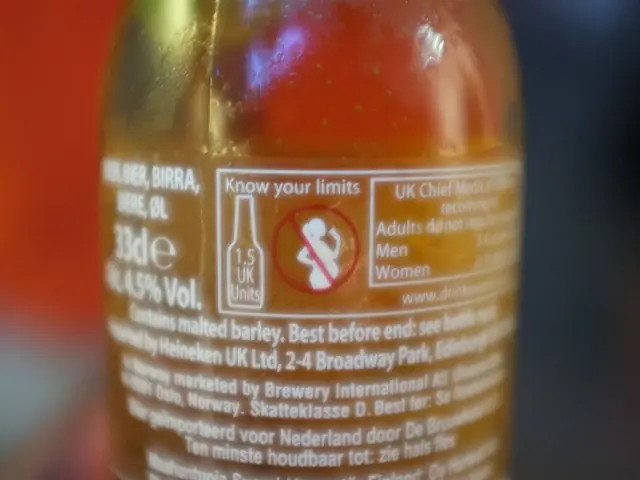Ground Beef Sold at Whole Foods Contains E. Coli Bacteria Warns Alert
The Food Safety and Inspection Service (FSIS) has issued a public health alert for 1-pound packages of Organic Rancher brand organic ground beef, sold at Whole Foods Market stores across the United States. The alert, issued on June 3, 2025, comes in response to potential contamination with E. coli O157:H7[1][2].
### Affected Products and Date Range:
The alert applies to 1-pound vacuum-packed packages of Organic Rancher Organic Ground Beef labeled as 85% lean, 15% fat. The affected products were manufactured on May 22 and May 23, 2025, and have expiration/use-by dates of June 19 and June 20, 2025. The packages bear the establishment number "EST. 4027" inside the USDA mark of inspection[1][2].
The ground beef was distributed in 27 states, including Illinois, Connecticut, Georgia, Maryland, and other locations with Whole Foods Market stores. It is essential to note that the product is no longer available for purchase, and the FSIS issued a public health alert rather than a formal recall[1][2].
### Symptoms and Risks:
E. coli O157:H7 contamination can cause severe foodborne illness. Symptoms typically include severe stomach cramps, diarrhea (often bloody), vomiting, and sometimes fever. In some cases, infection can lead to hemolytic uremic syndrome (HUS), a serious condition that can cause kidney failure[1].
The FSIS warns that the only way to ensure safety is by cooking ground beef to the proper internal temperature to kill harmful bacteria, emphasizing the use of a food thermometer[1]. Although no illnesses have been reported to date, the FSIS is concerned that some consumers may still have the product in their freezers[1][2].
### Additional Notes:
Consumers who have the product are advised not to consume it and to discard or return it. Those who experience symptoms after consuming the beef should seek medical attention promptly and may consider contacting legal assistance for potential food safety claims[1][2].
Robert F. Kennedy Jr., the current Secretary of Health and Human Services, has been at the helm during this situation. It is worth noting that Kennedy has campaigned against vaccines and does not believe in germ theory[4].
Brooke Rollins, the head of the USDA, has been a controversial figure, often associated with Trump and the fringe right[5]. The recalled fat products, including pork lard and beef tallow, were produced between December 2024 and March 2025, and the affected beef may have been sitting in refrigerators and freezers across the country[6].
The FSIS has only issued a public health alert and not a recall for the Organic Rancher ground beef, as the product is no longer available for purchase[1][2]. The agency states that the recalled products do not have a notice of inspection[1].
This alert serves as a precaution to protect consumers from potential health risks associated with this contaminated ground beef. Consumers are urged to check their freezers and refrigerators for the affected products and to take the necessary steps to ensure their safety.
References: [1]
- In light of the public health alert, consumers should check their freezers for 1-pound packages of Organic Rancher Organic Ground Beef, particularly those with expiration/use-by dates of June 19 and June 20, 2025, as potential contamination with E. coli O157:H7 has been identified.
- As the FSIS warns, it is crucial to cook ground beef to the proper internal temperature to kill harmful bacteria, and the use of a food thermometer is emphasized in this situation.
- Affected by this alert, the Organic Rancher Organic Ground Beef, labeled as 85% lean, 15% fat, was distributed across 27 states, notably including Illinois, Connecticut, Georgia, Maryland, and other locations with Whole Foods Market stores.
- Looking ahead, this public health alert serves as a reminder of the importance of food safety and the role of organizations like the Food Safety and Inspection Service (FSIS) in ensuring the health and wellness of the general public.
- In the realm of politics and general news, the FSIS's approach to preventing potential health risks, such as the current alert, may become a topic of debate, given the current Secretary of Health and Human Services' views on vaccines and germ theory, as well as the head of the USDA's past associations with controversial figures.




